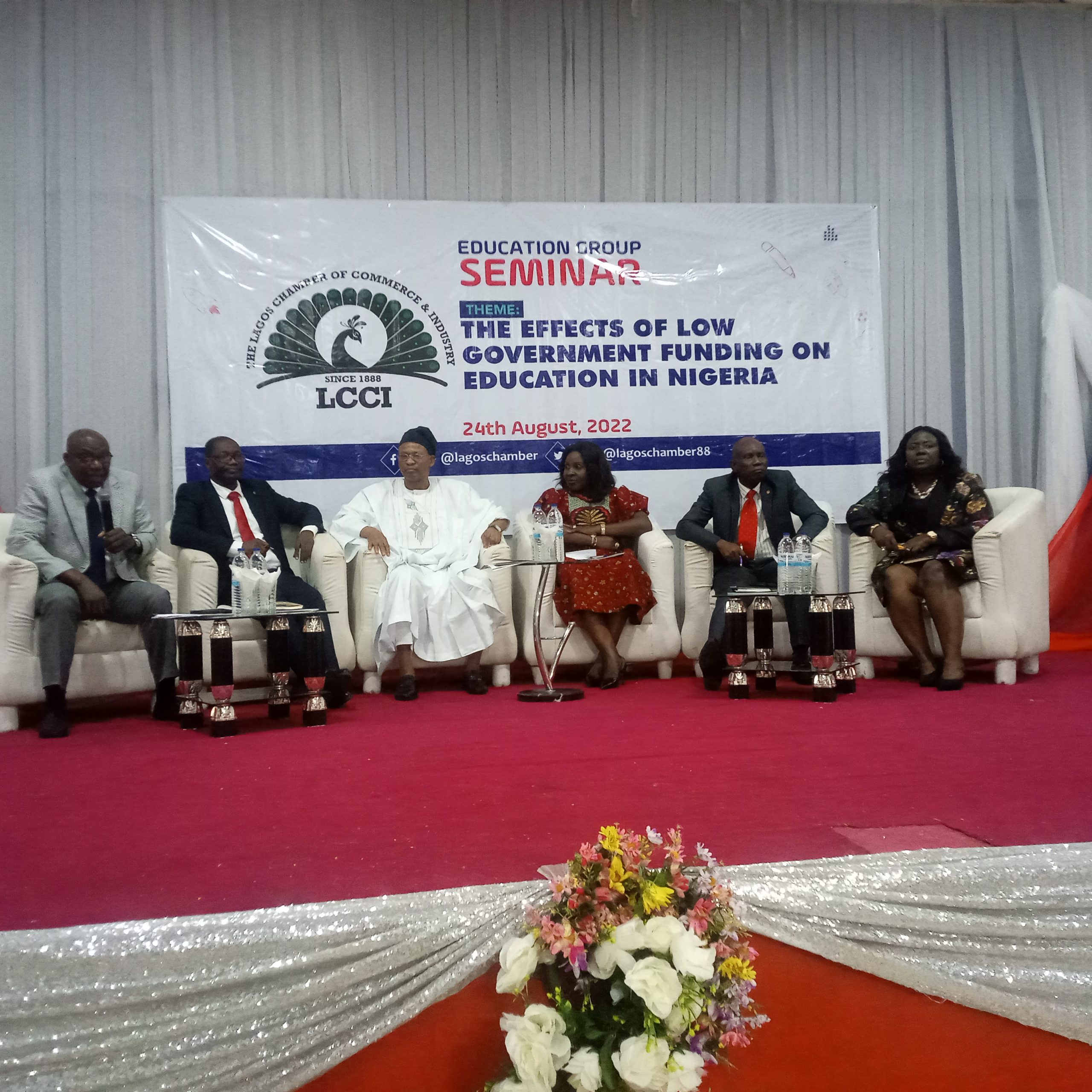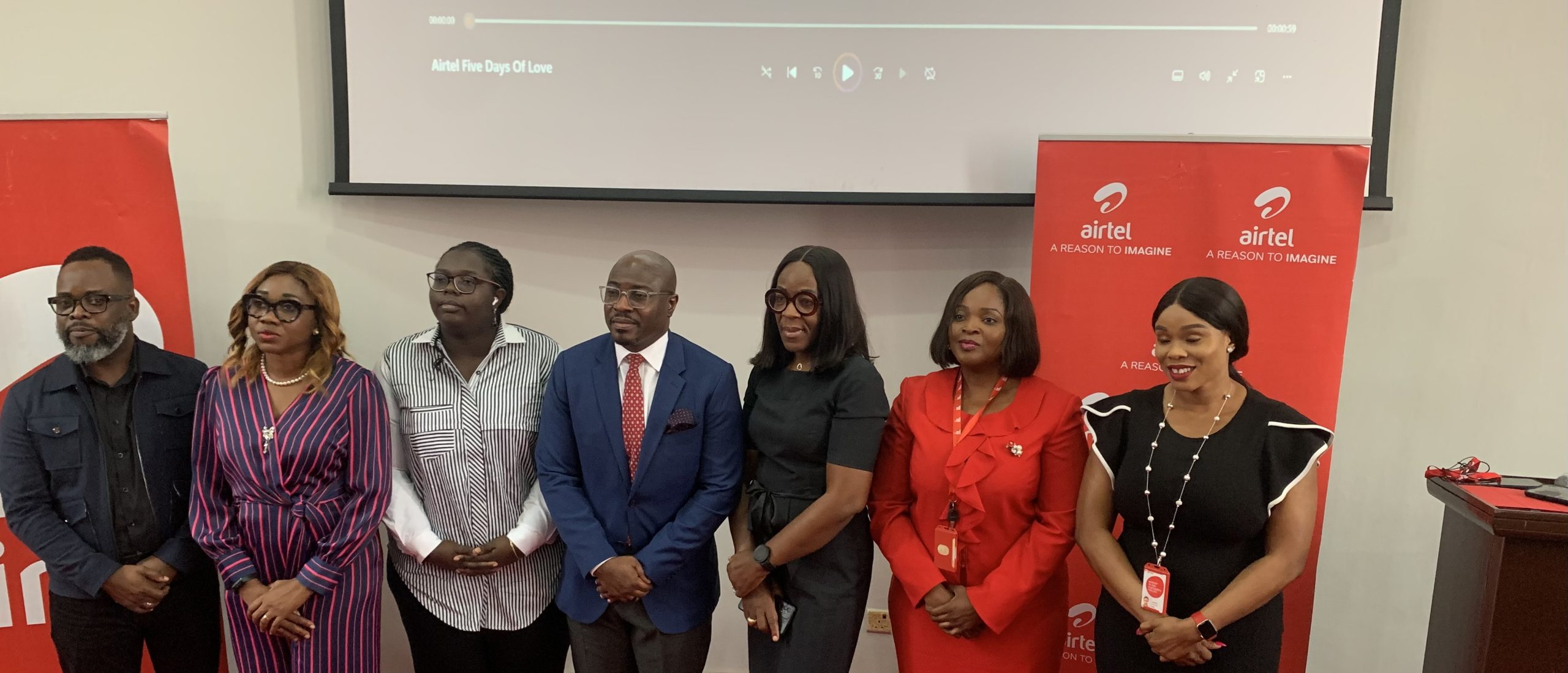By Ibidunni Banjoko
Experts from various sectors of the Nigerian economy and academics have argued that the provision of quality education is the hallmark of prosperous nations. Specifically, they stated that the level of educational achievements recorded in Nigeria has been lost compared to its per capita income.
Citing available data, the eggheads and professionals noted that Nigeria had low budgetary allocation to education at 6.5% in 2016/17 compared to Egypt’s 11.10, Ghana’s 13.50%, South Africa’s 15%, Lesotho’s 19.20% and Kenya’s 23.10%. They decried the fact that, in the last 10 years, Nigeria has committed less than 2% of its GDP on education.
Addressing these challenges during a seminar organised by the Lagos Chamber of Commerce and Industry (LCCI), Education Sector, which was held at the LCCI Conference and Exhibition Centre in Lagos, the eggheads attributed high illiteracy rates and other poor outcomes in education to low funding.
The seminar, which had the theme, “The Effects of Low Government funding on Education in Nigeria”, witnessed the presence of dignitaries such as Prof. Josiah Ajiboye, Registrar, Teachers Registration Council of Nigeria as the keynote speaker, and other discussants, including Adegbola Adeshina, Deputy Managing Director, CSS Bookshops Limited, Bunmi Lawson, Managing Director/CEO, Edwin Microfinance Bank, Isaac Olatunde, Past President, All Nigeria Confederation of Principals of Secondary Schools and Laolu Oguntuyi, Managing Director, Transbert View as the Moderator.
Prof. Ajiboye, while presenting his keynote, stated that the problem with Nigeria’s education sector goes beyond money, but rather a case of lack of interest in the sector by politicians who are supposed to remit the counterpart funding to access the 50 Million grant for their states.
According to him, education has an immense impact on human society, and educational programmes in Nigeria have been funded by governments, indeed parents and through aid in scholarships and donor assistance.
“Government funding in education has been increased significantly from the free primary education in the Western and Eastern regions to introduction of Universal Primary Education (UPE), and abrogation of fees, levies to basic and secondary schools. These measures translated proportionately to significant increase in government funding of education in Nigeria.
“Similarly, the placement of education in the concurrent list pre-supposes improved contribution from the three tiers of government in educational planning, administration and funding,” he said.
He added that the efforts of governments to improve education in Nigeria has been felt in the areas of implementation of compulsory education through the UBE Act 2004, introduction of TRCN CAPT3 of 2004, revision of the NPE (2008), establishment of UBEC, TETFund formerly ETF, inauguration of presidential task force on education in 2011 and deepening relationships with international organisations for support to education.
“Government should substantially and continually increase the education sector budget. Accountability, transparency, due process and budget disciplinary tools are sine qua non to the management of funds in educational institutions. There should be good governance and effectively established mechanisms for checks and balances,” he mentioned.
Commenting on the theme of the seminar, Dr. Michael Olawale Cole, CON President, Lagos Chamber Of Commerce & Industry (LCCI), noted that the effects of low government funding on education in Nigeria have left the sector disabled for both personnel and capital projects. He explained that the seminar was organised to have conversations around resolving the many conflicts that exist in the sector, the industrial actions that have paralyzed educational activities in tertiary institutions, and the poor funding that bedevil the sector.
“The importance of a transformed education sector to the nation’s economic growth and development cannot be overemphasized. Adequate access to reliable and affordable education is the catalyst for productivity enhancement, industrialization, and revenue optimization to make the economy globally competitive. Nigeria and indeed Africa can only join the league of developed economies if education enjoys deserved focus and transformation, especially with emerging realities in the deployment of technology for digital learning and artificial intelligence,” he said.
“We note with delight, some positive developments in the nation’s education sector. UNICEF, for instance, is said to be currently supporting Nigeria to achieve Sustainable Development Goal (SDG) 4 which is on quality education by 2030. Besides, we commend President Muhammadu Buhari for fulfilling his pledge to increase the allocation to the education sector this year by 50%.
“ Indeed, the increase from N742.5 billion in 2021 to N1.29 trillion this year is more than 50%. However, this is less than 10% of the 2022 total budget and far from the 15-20% benchmark recommended by the United Nations Educational Scientific and Cultural organisation (UNESCO),” he stated.







Comment
No comments found.